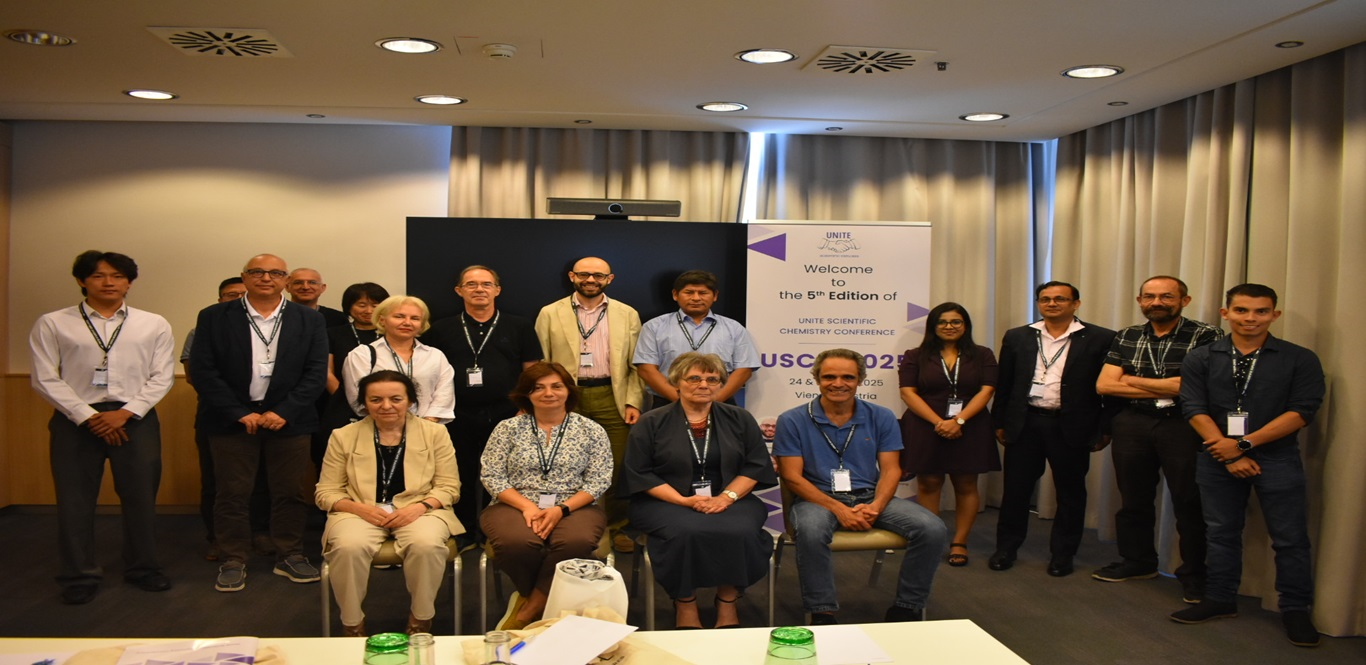


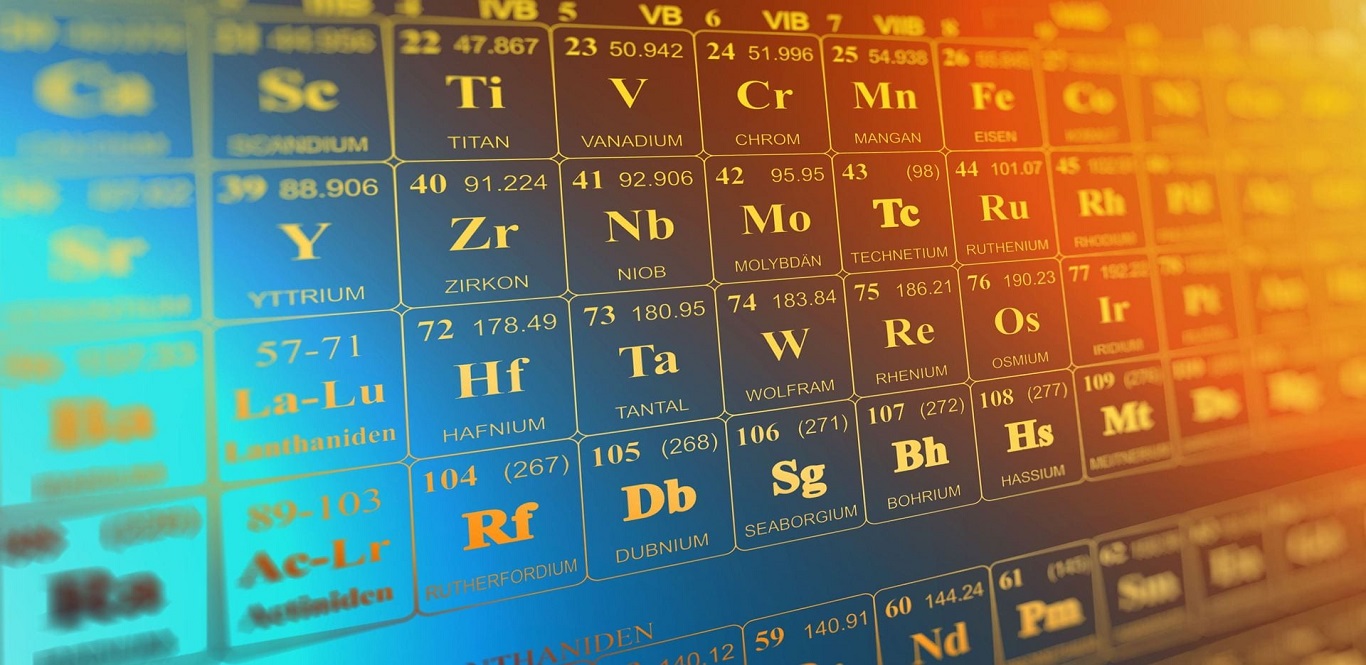

After successfully completing the Fifth Edition of USCC-2025, Unite Scientific Explores is glad to announce the 6th edition of the "Unite Scientific Chemistry Conference (USCC-2026)" which is going to be held during Sep 10-11, 2026 in Brussels, Belgium. We have heartily opened the invitation to Participants who are involved and working in Chemistry Research.
This Conference consists of multiple presentations, interesting breakout sessions, and demonstrations. Our strong objective is to give the best platform for the community of researchers, industrialists, doctors, professors, and students to share their research experiences and participate in interactive discussions for improving their networking opportunities.
Here we Unite world-class researchers, International Communities and Industrial Heads in this event and promote quality research to international scientific associations, and chemistry societies that identify future demands and needs in the fields of chemistry.
USCC-2026 is focused to introduce the latest achievements, technologies, and breakthroughs in chemistry research. We believe that your new ideas and inventions will get global recognition.
This Conference will strengthen the ideas about chemical sciences and medical fields and different chemistry-related areas. We provide a global stage for Researchers, Scholars, and Scientists to share data and their experiences and empower people with their deep knowledge. You can explore insights on recent new advancements, techniques, accomplishments, and experiments, learn from our expertise and get to interact with our honorable speakers.
Check the outline of our program and you can download it for your reference.
Click HereFor virtual speakers, we are using most secured and effective Cisco Webex platform.
Guidelines





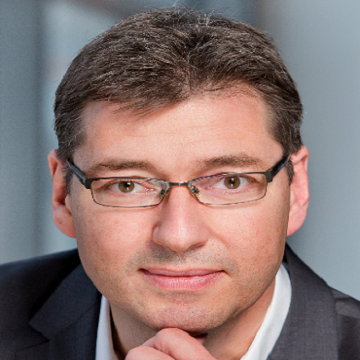
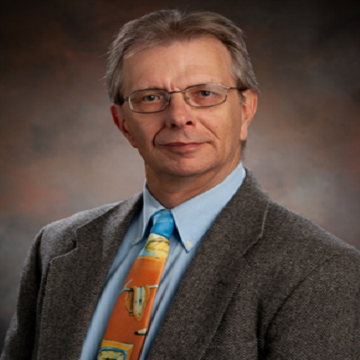
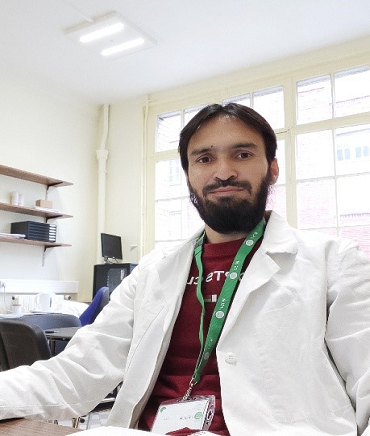
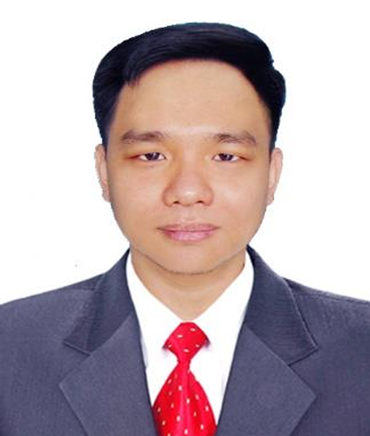
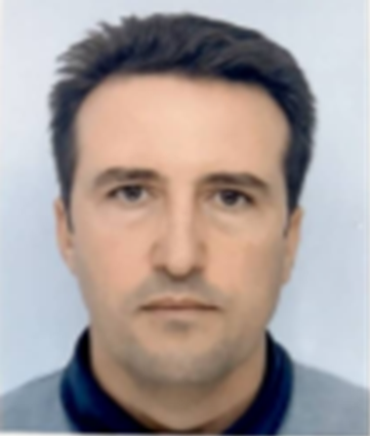
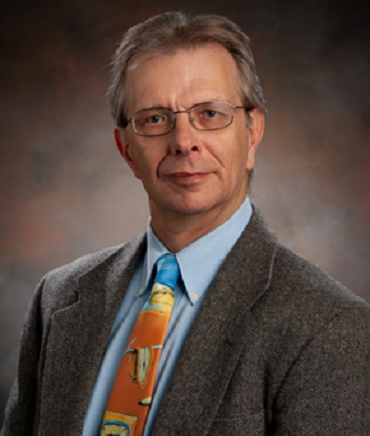
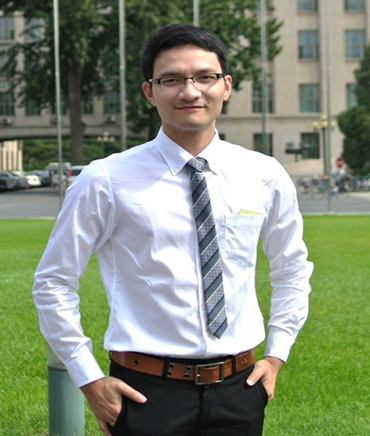

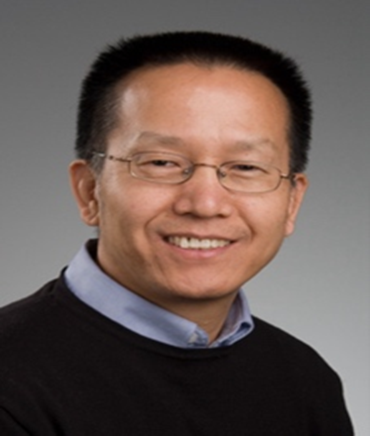
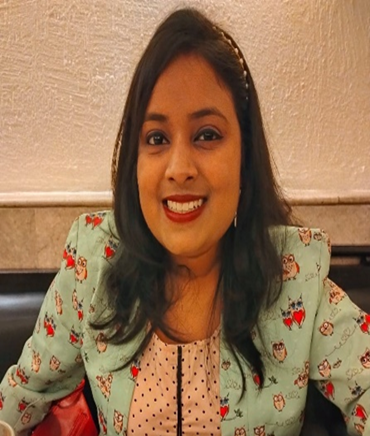




Hurry up!!!!!!!! To get the early-bird benefits proceed with registration.
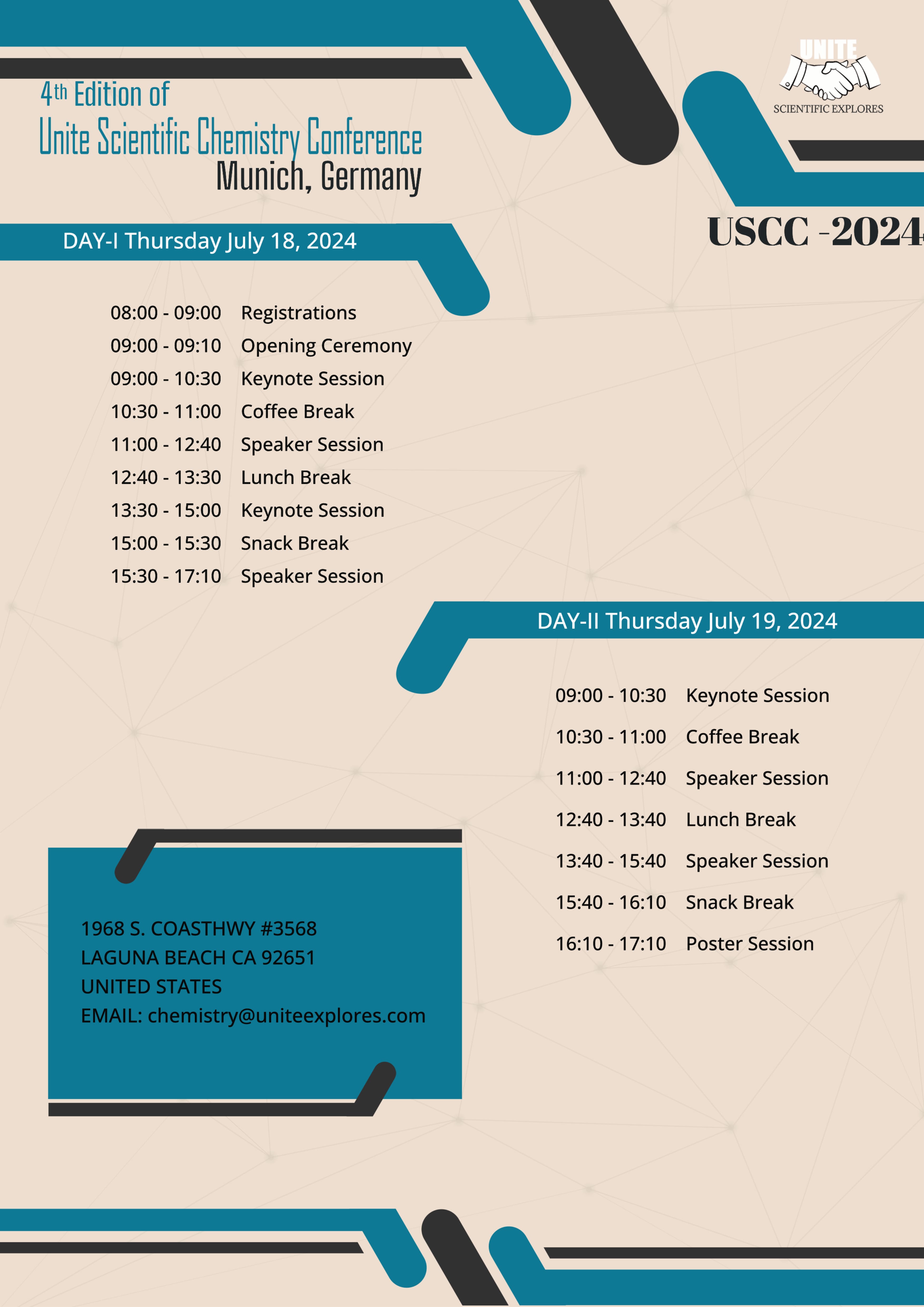
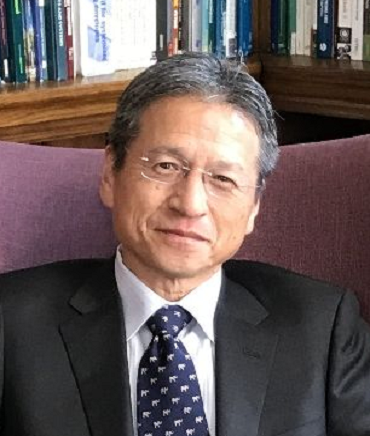
Ichiro Yamashita received a B.S. degree in electronics engineering from Kyoto University, Kyoto, Japan, in 1976, an M.S. degree in electronics engineering from Kyoto University, Kyoto, Japan, in 1978, and the Ph.D. degree in biophysics from the graduate school of Science, Nagoya University in1998. From 1978 to 2013, he was a Researcher at Panasonic Central Research Laboratories, International Advanced Applied Research Laboratory and Advanced Technology Research laboratories. 2003-2021.7 Visiting professor Nara Institute of Science and Technology, 2014-2022, Visiting Professor National Chiao Tung University, Taiwan. 2013.4-2021.3, Specially Appointed Professor, Osaka University. 2021.4-2022.3, Specially Appointed Researcher, Medical School, Osaka University, and 2022.4-present, Specially Appointed Professor, Osaka University.
His research interest includes Nanotechnology, Biomineralization, Aptamer (Site-specific binding peptide), and Biosensors. He proposed the inorganic nanostructures fabrication process, Bio Nano Process in 1997. He started its feasibility study in 1999. In 2004, he and his colleagues succeeded in fabricating the floating gate memory using the nanoparticle array made and arrayed by cage-shaped proteins. He is now engaged in two projects. One is the biological fabrication of electronic device key components, which function mainly based on quantum effects. The other is the Biosensor project which detects DNAs and biomolecules from blood, teardrops and body fluids. Awards and honors include Human Frontier Science Program. He is a fellow of the Japan Society of Applied Physics.
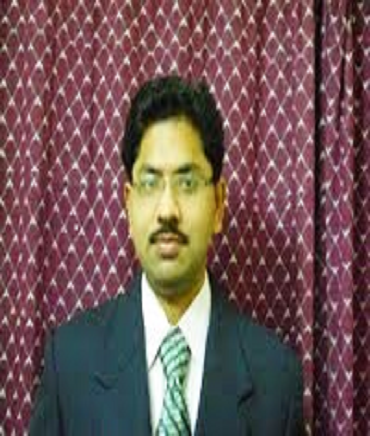
Prof. Niranjan Panda is working in the Department of Chemistry, National Institute of Technology Rourkela, India. His areas of interest in Natural product synthesis, Heterocyclic chemistry, and Heterogeneous catalysis. He has published 36 scientific articles in many international journals. Niranjan got sponsorship for his current 6 working projects.
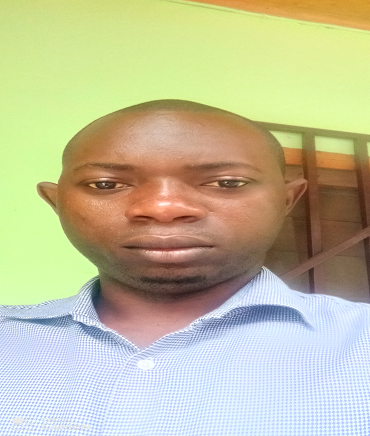
Cedric Clarfeler Boungou is a doctor in Condensed Matter Physics. He obtained his Ph.D. (Physics) in 2019 at the Marien Ngouabi University from Congo Brazzaville with high distinction. Currently, he is teaching the faculty of science and technics at the Marien Ngouabi University. His research is focused on atmospheric pollution and renewable energies. He participates in several research activities and publishes these works in international journals indexed and abstracted.
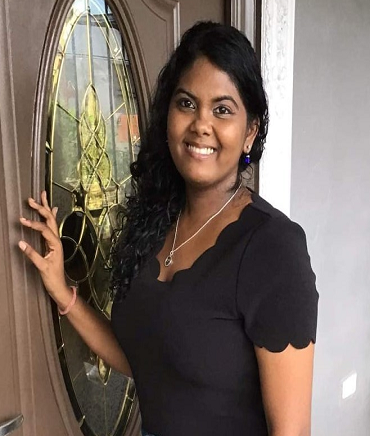
Padminee Ramsaroop is an MPhil candidate, focusing on Bio-Inorganic Chemistry at the University of the West Indies ST. Augustine. Currently, her research is aimed at modifying the curcumin molecule, creating metal complexes, and performing biological studies to produce anti-cancer agents. She received her BSc in Biology and Chemistry in 2020 and began her MPhil shortly. She is currently employed as a demonstrator at the University where she assists undergraduate students with their laboratory work. In her spare time, she volunteers at the Autistic Society of Trinidad and Tobago as well as the Trinidad and Tobago Cancer Society.
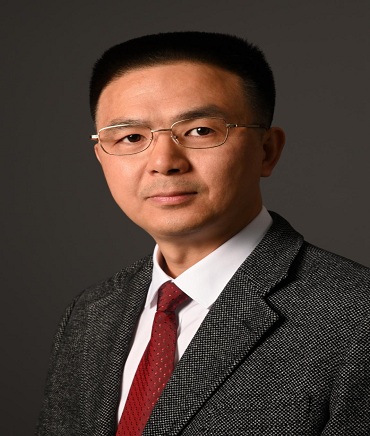
Huasheng FENG is a Founder and Director of the Molecular Simulation Laboratory, Division of Catalytic Science, SINOPEC (Beijing) Research Institute of Chemical Industry Co., Ltd. From 1994-1998 he completed his B.S in Chemistry at Peking University, 1998-2004 Ph.D. in Quantum Chemistry at Peking University and in 2004 become a Senior Engineer. His research on catalyst mechanism and catalyst design by quantum chemical calculation, including polyolefin ZN catalysts and single center catalysts, hydroformylation catalysts.
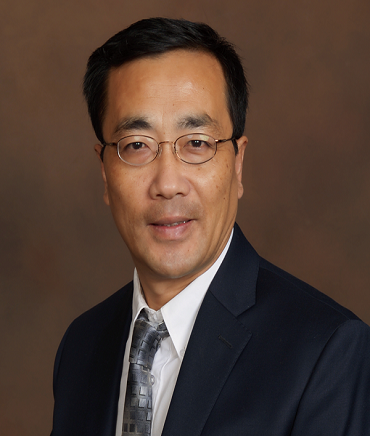
Prof. JOHN (JIANLI) HU is a Chair in Engineering for Natural Gas Utilization at West Virginia University. He completed his Ph.D. in Chemical Engineering in 1991 at Tsinghua University. From 1991-1995 Worked as a Chemical Engineering Postdoctoral Associate at the University of Pittsburgh. From 1999-2002 completed Business MBA at Washington State University. Currently working as Statler Chair Professor and Director of Center for Innovation in Gas Utilization and Research (CIGRU), West Virginia University. He Collaborates with U.S. national laboratories including NETL, PNNL, INL, and ORNL. He discusses the research on Methane catalytic pyrolysis and thermal heating over CNT-supported catalysts.
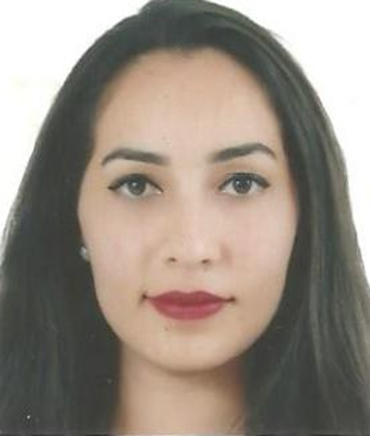
She is a Postdoctoral Researcher at Universidad de Zaragoza. She is passionate about developing and implementing innovative bioenergy solutions that address the global challenges of climate change, resource scarcity, and environmental sustainability. She has over six years of experience in the thermochemical processing of biomass waste, advanced biofuels, and textile residues, using various laboratory techniques and analytical skills. She holds a Ph.D. in Chemical Engineering and Environmental Technologies from the University of Zaragoza. She has published several research papers in reputable journals and participated in international conferences.
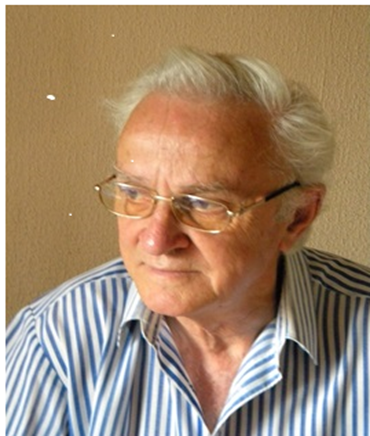
He was born in 1940 in Sukhumi (Georgia). 1946-1957 - school, 1957-1962 Sukhumi Pedagogical Institute - Faculty of Physics and Mathematics. 1967-1969 - worked at the Sukhumi Institute of Physics and Technology in the mass spectral laboratory. He developed and manufactured the first dual-focusing spark ion source mass spectrometer in the Soviet Union for the analysis of impurities in solids. 1969-2018 moved to Chernogolovka (Moscow region) and worked at the Institute for Problems of Technology of Microelectronics and High-Pure Substances - engineer, junior researcher, senior researcher, head of the mass spectrometry laboratory. In 1974 he defended his candidate's thesis, in 1989 - Doctor of Physical and Mathematical Sciences. He mainly worked on the creation and improvement of plasma ion sources. In 2000, he began working on a new glow discharge ion source for multielement analysis of various substances with high sensitivity based on a hollow cathode.
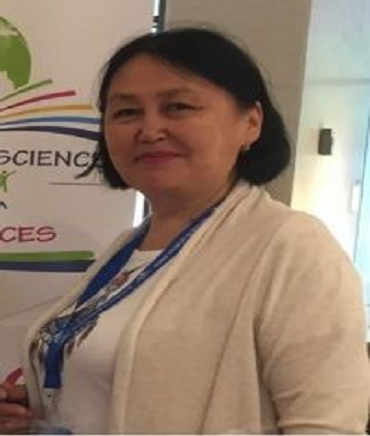
Aigul Koizhanova is head of the Laboratory of Special Methods of Hydrometallurgy named after B.B. Beisembayev. She is a project leader of the research (2011–2020 ), projects with industrial enterprises (2013–2018), under her guidance in 2014 a technology for the rehabilitation of sorption factory tailings from cyanide and arsenic was introduced at the gold extraction plant of «Altyntau Kokshetau» JSC, in 2016 industrial tests were conducted at the Akbakai gold extraction plant; she is an author of more than 150 scientific papers in the field of non-ferrous and noble metals metallurgy (including articles in rating foreign journals «Russian Journal of Inorganic Chemistry», «Non-ferrous metals»), including 20 secure records of the Republic of Kazakhstan.
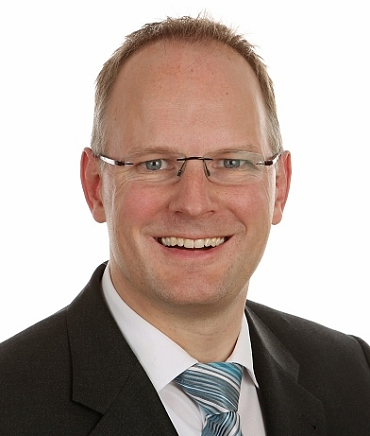
Thomas Koch studied mechanical engineering in Karlsruhe from 1993 until 1998. He joined ETH Zürich in 1998 where he received his Ph.D. in 2002. After a year as a postdoc in Zürich, he joined former DaimlerChrysler (today Daimler Truck) in 2003 where he developed the new Medium-Duty Diesel Generation MDEG OM934/936. In the year 2013, he joined the Karlsruhe Institute of Technology as head of the institute of internal combustion engine research.
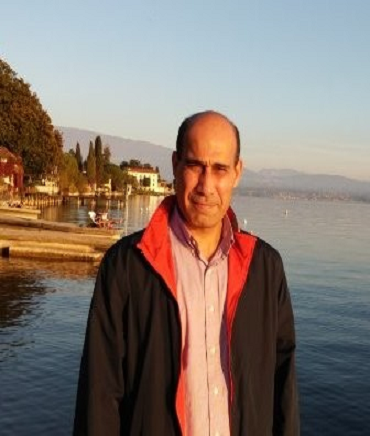
Dr Ali Altaee is an Associate Professor at the University of Technology Sydney, Australia since Apr 2016. He is working at the forefront of renewable energy, water engineering, and soil remediation, developing innovative technologies in alternative water sources. A senior lecturer in Engineering and Information Technology at UTS, Ali is a member of the UTS Centre for Green Technology (CGT), and of the Centre for Technology in Water and Wastewater (CTWW), which is a leading research centre in the field of alternative water sources. He has developed industrial and academic expertise working at both industrial research centres and institutes of higher education and has particular research expertise in the areas of reverse osmosis and membrane technology.
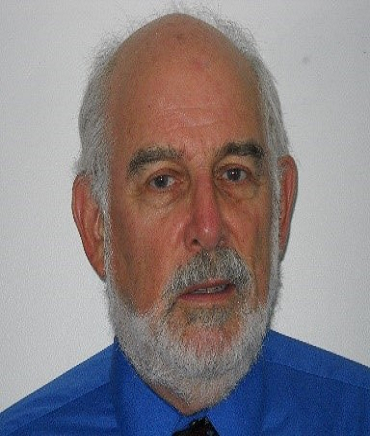
Lawrence Berliner is a pioneer in protein structure and diagnostic technique research starting at Stanford University, then Ohio State University, and now retired from the University of Denver and the Graduate Toxicology Program, Univ. of Colorado School of Pharmacy. His team was the first to develop thiol-specific spin labels, which became the basis of Site-Directed Spin Labeling (SDSL) for studying membrane protein structure and other proteins that cannot be crystallized. He has been a leader in the early detection and prevention of destructive free radical processes. His other research has involved protein-protein interactions, blood coagulation, serine proteases, and lactose biosynthesis.
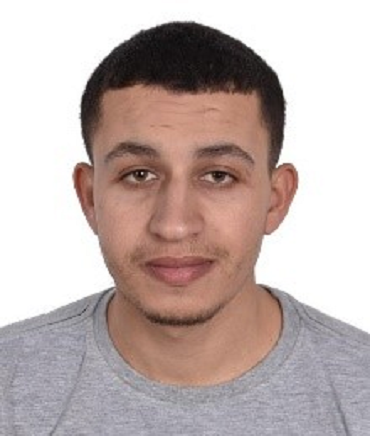
Abdelhak Mesbah is a Ph.D. student in analytical chemistry at the University of Djillali Liabés in Algeria, he is focusing his research on the retention of organic pollutants, specifically herbicides Diuron and Glyphosate, by clay materials. He is a member of two research projects: "SAFE, PRIMA-2021," aimed at enhancing safety in agriculture, food, and the environment, and "PRFU-2022," focused on studying organic pollutant retention by clay. He is also participated in doctoral days, national and international conferences.

Rok Grahek received his B. Sc in Chemistry and his Ph.D. in Science from the University of Ljubljana, Slovenia. In 1986 Rok was employed in Research and development in Lek Pharmaceuticals d.d.. Slovenia.
As a researcher, he started with GC and after a few years, HPLC and MS became his main area of interest in connection with impurities in drugs. Trace analysis of impurities (Genotoxic Impurities, Synthetic Tracers, Nitrosamines) with LC-MS and GC-MS is an important area of Rok’s research.
For the past 25 years, Rok has led a group of researchers dealing mainly with impurity profiles, impurities isolation, identification, and trace analytics. Rok is the author or co-author of nearly 40 patents and scientific papers and more than 50 scientific conference contributions.

Kitouni Saida received a Ph.D. degree in physics from the University of Constantine, Algeria in 2013. She is currently a lecturer and her current research interests are porcelains. Participate in some international conferences in Algeria and others countries in the world. Research Interest are Porcelain, lightweight concretes
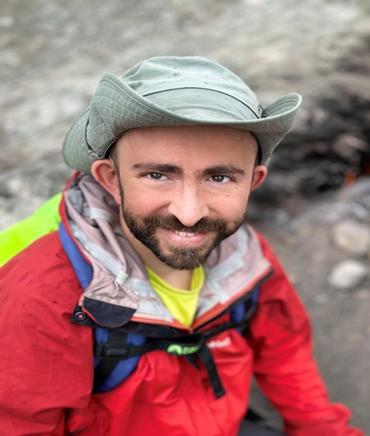
Gabriel Antonio Salvador Minero has been in the field of chemistry and biology of Nucleic Acids for 15 years. After completing PhD at the Ruhr-University of Bochum in 2015, he pursued an academic career in the field of DNA Nanotechnology at the Technical University of Denmark. Currently, he is an Assistant Professor at the Interdisciplinary Nanoscience Center at Aarhus University.
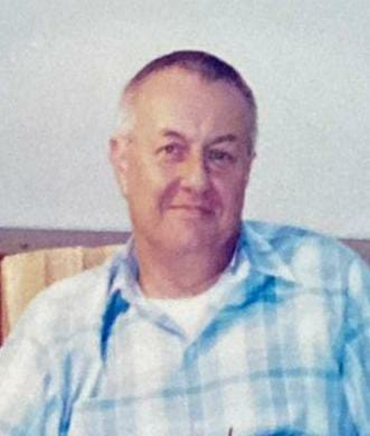
Boris Ivlev came from the Landau Institute for Theoretical Physics, Moscow. His activity at that time was mainly in the field of superconductivity. For the last thirty years, he has belonged to the Physics Institute of the University of San Luis Potosi, Mexico. He works in the fields of quantum physics, high energy physics, soft condensed matter, and partly in biophysics.

Kemi Oloyede is a British-born environmental scientist, writer, and visual artist of Nigerian descent. She is currently doing a Ph.D. in Clinical Medicine Research (Public Health) at Imperial College London and enjoys exploring meaningful connections between the sciences and the creative arts in her spare time.
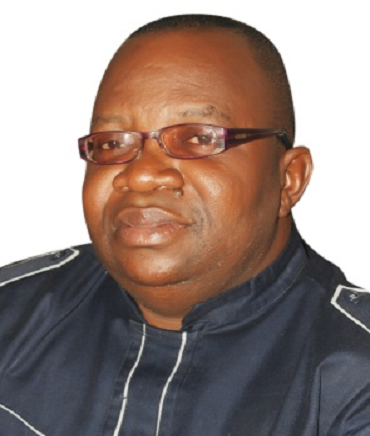
Enock Olugbenga Oladepo DARE is presently a Professor of Nanotechnology and Materials at the Federal University of Agric. Abeokuta, Nigeria. He holds a Ph.D. in Chemistry from the University of Ilorin, Nigeria, and an Advanced Research Diploma in Chemical Engineering from the Tokyo Institute of Technology, Japan. Postdoctoral training at Princeton University, NJ, USA. He is a UNESCO and MONBUSHO fellow (Japan); FULBRIGHT and USAMI fellow (Princeton University, USA); Taiwanese National Science Foundation fellow (Taiwan); A regular associate of ICTP, Trieste, Italy. He recently got the world's most prestigious Alexander von Humboldt (AvH) – Georg Forster fellowship. He is presently an AvH fellow, an awardee, and a Professor at the University of Regensburg, Germany. He has made excellent research output in Hybrid nanocomposites based on POSS, nanoporous membrane technology, transdermal drug delivery, nano bimetallic for sensor and catalysis, green nanotechnology, nanobiotechnology, etc. His most current research lies on “nano-enabled materials for anti-counterfeiting, fingerprinting for criminality detection
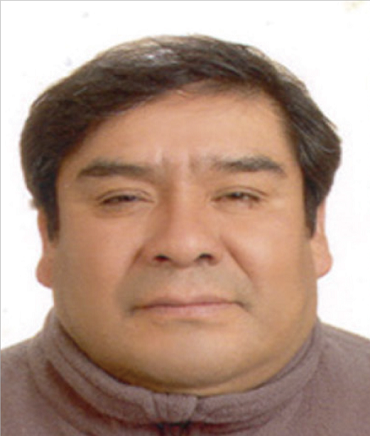
Dr. Joel Díaz-Reyes received his doctorate from CINVENTAV-IPN. He enrolled in the Applied Biotechnology Research Center of the National Polytechnic Institute. The work team regularly publishes articles on electrospinning nanofibers with applications in catalysis.
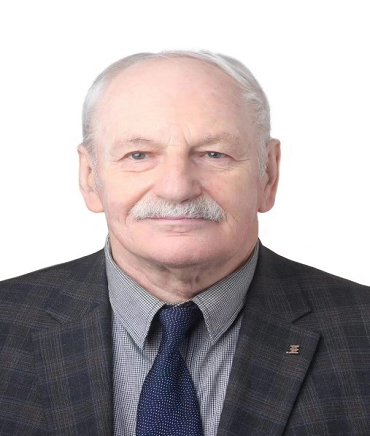
Alexander Shmatov is Chief Researcher and Professor of the Belarusian National Technical University, Professor and Academician of the Russian Academy of Natural Sciences, Professor of Wuhan Textile University, D.Sc. in Materials Science and Mechanical Engineering. His area of scientific interests: strengthening mechanisms and compositional structures of materials formed during chemical-thermal, thermocyclic and thermohydrochemical treatments; environmentally friendly “Green” technologies for producing coatings and ceramics based on nanomaterials; computer modeling of processes. Author of 148 scientific publications, 4 monographs, 2 textbooks and 64 inventions. He led ten major scientific projects. The technologies he developed were used at 17 enterprises in Belarus and Russia.
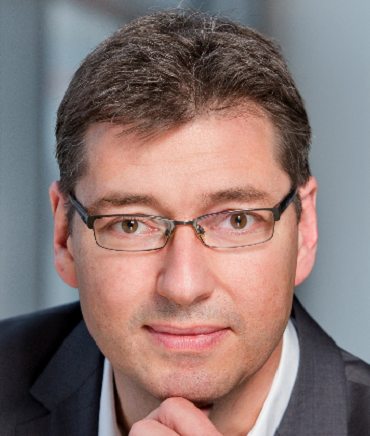
Thorsten Wack graduated in theoretical physics at the Technical University of Dortmund in 1995 and received his doctorate at the Ruhr University Bochum in the Faculty of Mechanical Engineering. He has been at Fraunhofer UMSICHT since 1995, where he is now head of the business unit "process digitalization".
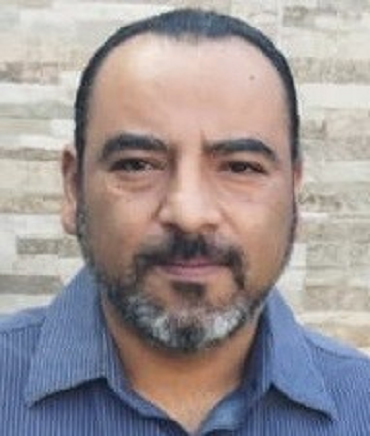
Dr. González holds a Personal Chair in Biophysics at the Technological University of Querétaro, Mexico. He has 7 years of biophysical research experience at this university. He regularly publishes in the molecular and nanomaterials literature, and regularly presents data at national and international scientific meetings. His group has studied the ionization properties of nucleobases in short DNA models, either by spectroscopic methods or computational ab initio algorithms, applying this knowledge to develop DNA-based inorganic and organic nanomaterials, even coupled to other biopolymers such as polysaccharides, or inorganic substrates composed by metal oxides.
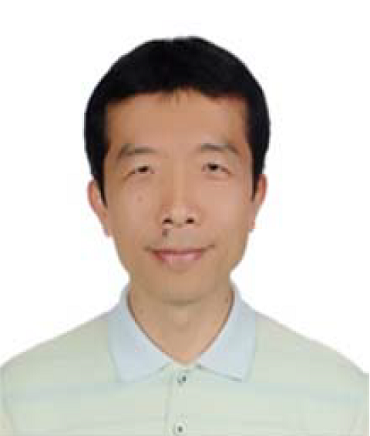
Dr. Chen-Kuei Chung received his B.E. and Ph.D. degrees in Materials from National Tsing Hua University, Taiwan, in 1989 and 1994. From 1994 to 2002, he worked at the Industrial Technology Research Institute for developing MEMS technologies & key components such as inkjet printhead, IR sensor array and biochip. He joined the Department of Mechanical Engineering, at National Cheng Kung University in 2002 and has worked till now. He has expertise in micro-nano material science and engineering, and fabrication, characterization and process integration of MEMS/NEMS devices for sensor, actuator and LIGA application, especially in the advanced hybrid pulse anodization, characterization, SERS and application; laser processing, polymer molding and mechanical energy harvesting from unique microneedles-triboelectric nanogenerator (TENG).
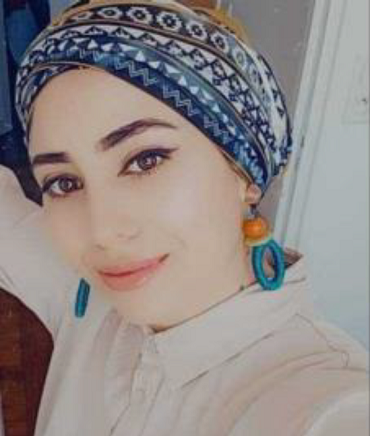
Dr. Siham Amra is a teacher-researcher at the University of Bejaia (Algeria), where she works as a Master Assistant B, specializing in analytical chemistry. A very eclectic background and an ever-lively curiosity have enabled him to acquire and appropriate multiple and diverse skills. His research contributes to the development of sensors by implementing electrodes based on modified carbon pastes for applications in the electroanalysis of ultra-traces of pesticides and pharmaceutical products. She has produced 15 communications and publications. She did several internships in France at the National School of Chemistry in Rennes. The lines of research were centered on the valorization of natural materials and their application in the design of efficient, sensitive analysis devices capable of quantifying several pollutants, the protection of the environment and human and animal safety.
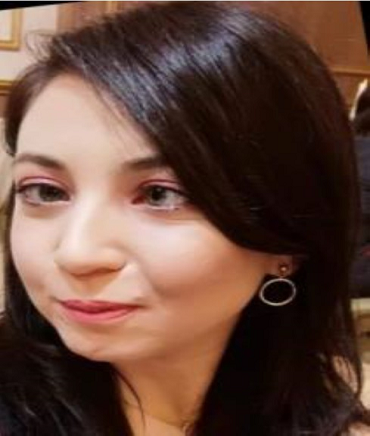
Mariem Khouja holds a Ph.D. in biological engineering from the National Institute of Applied Sciences and Technology-Tunisia. She is part of the research group of the nanobiotechnology and valorization of natural phytoresources laboratory. The group's current research involves the characterization and enhancement of aromatic and medicinal plants.
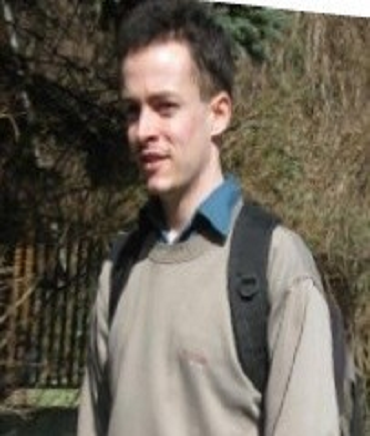
Benedek I. Karolyi is a senior medicinal chemist at Gedeon Richter Plc., Hungary. He has 11 years of experience in the field of medicinal research and discovery. His first article was published in 2009 in the field of organometallic chemistry. Back then he also published works in organocatalysis and quantum chemical modeling. His current research involves design, synthesis, and SAR studies of CNS-targeted small molecules as modulators of various receptors.
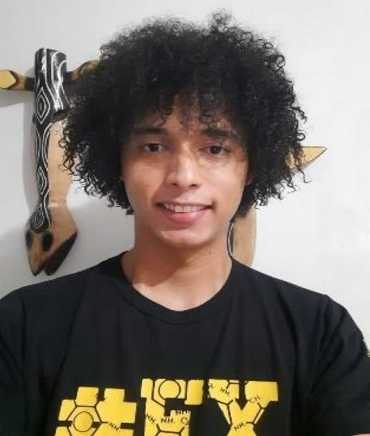
Gabriel Santos Pessoa Graduated in Chemistry (2023) and he is actually a Master's student in Inorganic Chemistry from the University of Brasilia. He was part of the Institutional Program of Scholarships for Initiation to Teaching (PIBID) and participated in the Pre-PAS project at the Federal Institute of Brasilia (IFB). Has experience in Inorganic Chemistry, with emphasis on Crystallography, acting mainly in Structural, Theoretical, and Biological Investigation of Bioactive Compounds, oriented by Professor Dr. Claudia Cristina Gatto.
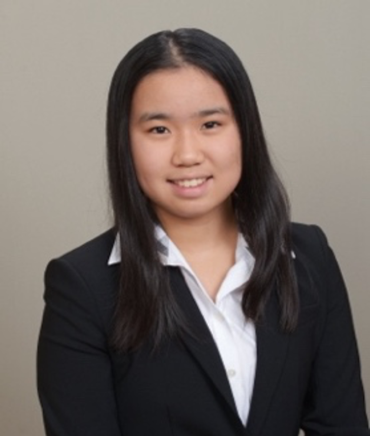
Marina is a junior at Thomas Jefferson High School for Science and Technology and has presented her research at conferences around the world. She has qualified for some of the top math and computer science competitions in the world such as the United States Junior Math Olympiad and the USA Computing Olympiad Gold Division. She is the President of INTEGIRLS DC, one of the largest international non-profits in the world aimed at breaking down gender-based barriers in STEM.
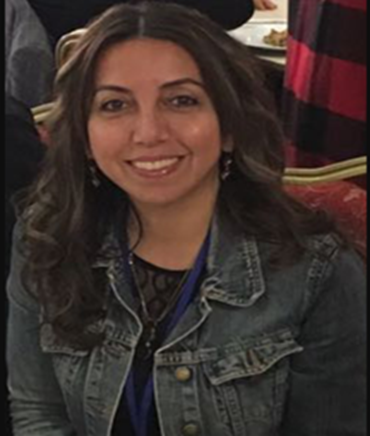
Professor Ayşegül Gölcü completed her primary, secondary, and high school education in Ankara, the capital city of Turkey. She graduated from 19 Mayıs University, Faculty of Arts and Sciences, Department of Chemistry. She completed her master’s and doctorate degrees at Ankara University, Faculty of Pharmacy, Department of Analytical Chemistry. In 2010, she went to Clarkson University in Potsdam, the USA for “postdoc” studies and worked on “electrochemical sensors” with Prof. Petr Zuman. In 2012, she was appointed as a “full-time professor” at Kahramanmaraş Sütçü İmam University, Faculty of Science and Letters, Department of Chemistry, and served for five years. She has been working at Istanbul Technical University, Faculty of Arts and Sciences, Department of Chemistry since 2017. Since 2019, she has been collaborating with Prof. Omowunmi Sadik (New Jersey Institutes of Technology) on “binding mechanisms of natural compounds to dsDNA”. She has over one hundred national and international articles, projects, and theses on spectrophotometric and voltammetric drug analyses, drug-metal complexes, biosensors, and natural compounds. She is a member of the “Management Committee” in COST’s actions “D39- Metallo-Drug Design and Action” and “CM1105: Functional metal complexes that bind to biomolecules”.
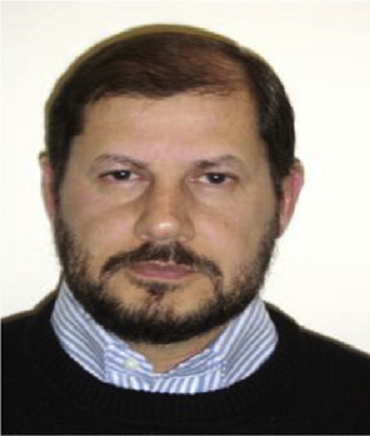
Professor Dr. Hélio A. Stefani received his M.S. and Ph.D. degrees from the University of São Paulo in 1988 and 1991 respectively, working under the supervision of Professor Dr. João V. Comasseto in the field of organic selenium and tellurium chemistry. Currently, he is a Full Professor at the School of Pharmaceutical Sciences – USP. He spent one year (2001) at the University of Pennsylvania and Philadelphia, PA-USA, working with Professor Dr. Gary A. Molander. His interests in chemistry include the development of synthetic methodologies of selenium, tellurium, boron compounds, heterocyclic chemistry as well as cross-coupling reactions.
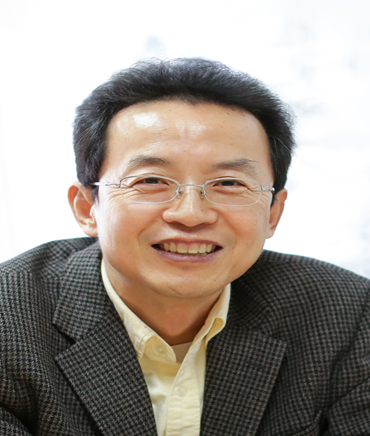
Prof. Jaichan Lee is a professor of Advanced Materials Science and Engineering, at Sungkyunkwan University (SKKU), Korea. He completed his doctorate in ferroelectric thin films for non-volatile memory application at Rutgers, The State University of New Jersey, USA in 1993. After his material study of ferroelectrics and ferroelectric non-volatile memories in Bell Communications Research (Bellcore), USA as a postdoctoral Member of Technical Staff, he joined Sungkyunkwan University at 1995, He served as the President of the Korean Dielectrics Society. He had been a director of the BK21 Center for Emergent Materials supported by the Ministry of Education, Korea. He has published more than 180 papers in reputed journals including a paper titled “Isostructural metal-insulator transition in VO2” published in Science (2018) and “Lanthanum-substituted bismuth titanate for use in non-volatile memories” published in Nature (1999). His current research includes computational Materials science and materials informatics.
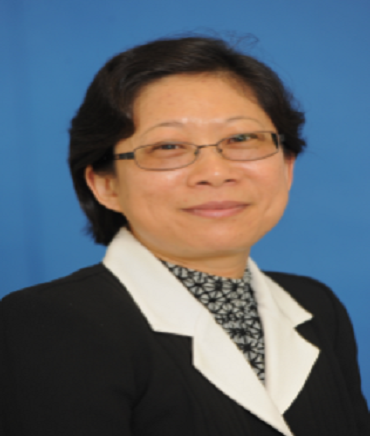
Irena Roterman is a professor of bioinformatics, protein structure, and amyloid transformation. Employed at Jagiellonian University – Medical College Krakow, Poland. Educated in theoretical chemistry, specialized in computer techniques oriented on biological issues. Two years postdoc at Cornell University – H.A. Scheraga group. 2000-2020 Chief of the Department of Bioinformatics and Telemedicine – Jagiellonian University – Medical College. Chief Editor of the journal Bio-Algoriythms and Med Systems (2000-2020 https://bamsjournal.com/). Author of 150 publications (according to PubMed) and books: Springer https://link.springer.com/book/10.1007/978-3-031-31557-2), Walter de Gruyter (ISBN (978-3-11-04064403), Elsevier (elsevier.com/books/from-globular-proteins-to-amyloids/roterman-konieczna/978-0-08-102981-7). Present on the 2% top scientists list – Stanford University.
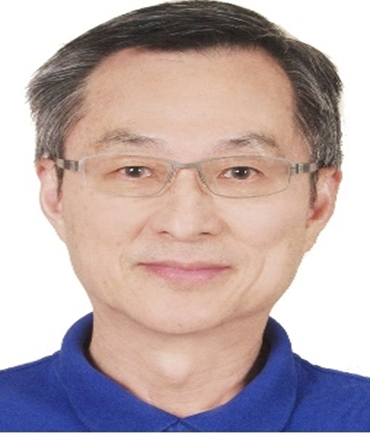
Dr. Junfeng Rong is the Chief expert of the SINOPEC Research Institute of Petroleum Processing. He received his PhD from SINOPEC Research Institute of Petroleum Processing in 2000 and became an Alexander von Humboldt research fellow at Georg-August-Universität Göttingen in Germany from 2000-2001. He presided over the establishment of the Research Center of Renewable Energy of Sinopec and served as the director, and once served as the head of the National 973 project, the key project of the National Natural Science Foundation, and the key hydrogen-energy project of Sinopec. He has applied for 383 invention patents(238 issued) and has published more than 132 academic papers, H-index=29. He presided over the development and industrial application of high-activity single-atom platinum HER catalysts. He led the team to develop a level PEM water electrolysis system and a 100 kW level AEM water electrolysis system. He has won the "Min Enze Award - Outstanding Contribution Award" and First Prize of the SINOPEC Prospective and Basic Research Science Award.
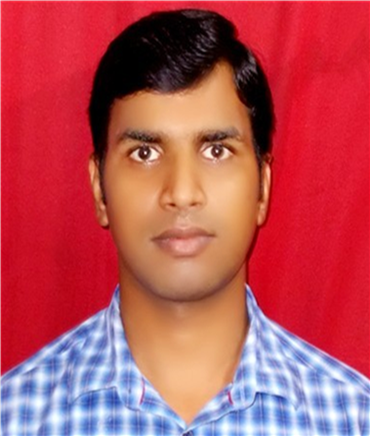
Dr. A. Chandra obtained his B.Sc. from VBSPU Jaunpur, in 2010 and his M.Sc. from the University of Allahabad, Preayagraj, in 2012. He joined the Ph.D. program at the Indian Institute of Technology Delhi (IIT Delhi) in 2013 and gained experience in the area of peptides and dendrimers. Later, he moved to IIT Kanpur in 2014 for doctoral studies in synthetic organic chemistry and received his degree in specialization for oxidative transformations using hypervalent iodine reagents. After completing his Ph.D. in 2020, he moved to IIT Bombay for postdoctoral research in 2021, where he was involved in the development of new synthetic methodologies using sulfonyl phthalide reagents and asymmetric catalysis as well.
Since 2023, Dr. Chandra has been appointed as a research professor in the Department of Information Display at Kyung Hee University, South Korea. He started exploring the area of OLEDs and wanted to develop BODIPYs, CADIPYs, and MR-HF/TADF materials for commercialization purposes. In the future, he also wanted to explore his synthetic expertise in genetic biology in collaboration with some of the greatest scientists by developing bioactive molecules.
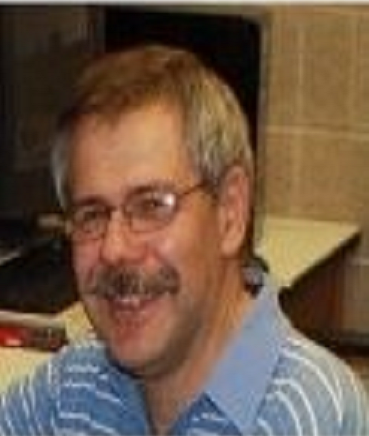
Reona Miyazaki received his Ph.D. degree from Tohoku University, Japan in 2013 under the supervision of Prof. Hitoshi Takamura. He joined the group of Prof. Kazunori Takada at NIMS from 2013 to 2015 as a postdoctoral fellow. From April 2015, he became an assistant professor at the Nagoya Institute of Technology (NIT). He has joined the research team of the NGK Environment Innovation Laboratory since April 2017. In 2024, he became associate professor of the Department of Physical Science of Engineering in NIT. Current researches involve fluoride-based alkali-ion conductors and the ion dynamics in the Li+/Na+ mixed solid electrolytes.
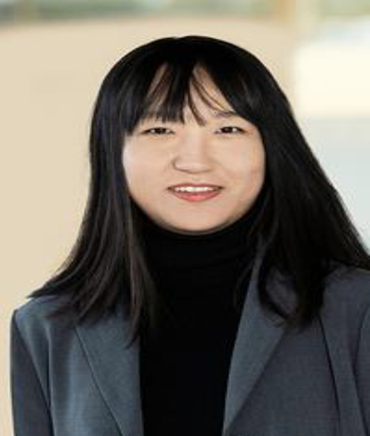
Liu Hang is currently doing her doctorate at Aalen University in Germany. There she has been working as a Research Assistant at the Research Institute for Innovative Surfaces FINO since 2023. Her research mainly focuses on Polymers, Plastic packaging, and how to improve the characteristics of Biopolymer surfaces without modifying the bulk characteristics of the polymer. The research centers on the plastics polylactic acid (PLA) and poly(butylene adipate-co-terephthalate) (PBAT). Before she did her master’s degree in Applied surface and material sciences at Aalen University and also worked as an Engineer in the Pharmaceutical Technology Division.

Pierre-Yves Renard has been a full professor of organic chemistry at the Université Rouen-Normandie since 2003. He has at the head of the bioorganic chemistry group since 2006. In 2007, Pierre-Yves Renard was awarded a 5-year tenure position as a Junior member of “Institut Universitaire de France”. Current research of the group involves bioconjugate chemistry, photocross-linkers, profluorescent and chemiluminescent probes, and medical countermeasures against organophosphorus nerve agents. Pr. Renard co-authored 180 publications and 15 patents.

Prof. Salman, an associate professor in the Department of Physics at SCE, specializes in infrared spectroscopy and the study of microorganisms. His research focuses on FTIR microscopy, fluorescence spectroscopy, Raman, optical diagnostics, and machine learning. Collaborating with researchers in Israel and the USA, he uses infrared microscopy and machine learning to detect antibiotic-resistant bacteria and differentiate bacterial from viral infections via simple blood tests. Prof. Salman is a referee for leading journals and supervises 5 Ph.D. and 6 M.Sc. students. He holds patent US 2023/0386662 A1 and has secured multiple research grants, showcasing his expertise and innovation.
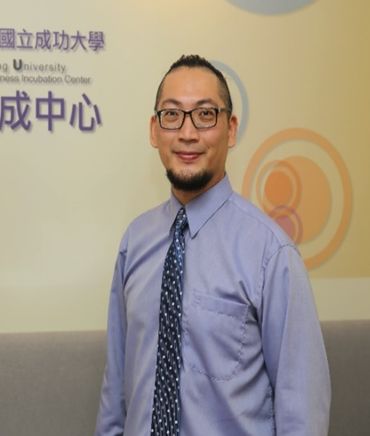
Guan-Da Syu is an Associate professor, at the Department of Biotechnology and Bioindustry Sciences, National Cheng Kung University, Taiwan. In 2012 he completed his Ph.D. in the field of Basic Medical Science and in 2005 he completed his B.S. in Environmental Engineering and Minor in Life Science. His research interests are Analytical Chemistry, Protein microarray, Host and microbial interactions, High throughput technology, Exercise physiology, Virology, and Bioinformatics. He received the National Innovation Award in 2023 and got Distinguished Award, Innovation Award for Young Scholar, Taiwan Comprehensive University System, in 2021.
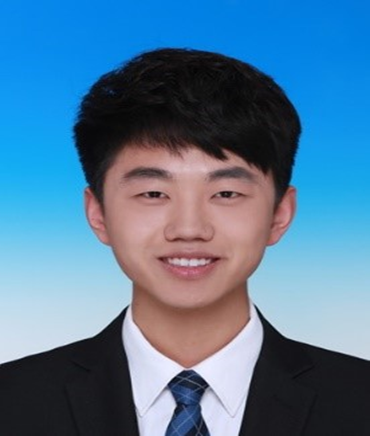
Shuai Wang received his bachelor's and master's degrees at Beijing University of Chemical Technology(2013-2020), majoring in chemical engineering and technology. Currently, he is pursuing a Ph.D. degree at the University of Hong Kong. His research interest is about AI for science, such as OLED emitters design.

Aleksandra Wesełucha-Birczyńska leads the Vibrational Spectroscopy Group at Faculty of Chemistry. The main directions of research include studies of materials of biological origin (blood cells, central nervous system tissues in an animal model, Cinchona alkaloids, plant materials including cellulose) and minerals (carbon nanoparticles, archaeological artifacts) in the context of their structure and function using Raman spectroscopy and two-dimensional correlation spectroscopy 2D-COS. Analysis of the molecular structure of biomaterials for regenerative medicine and molecular interactions at the phase boundary observed in a new generation hybrid layers for medical applications and finally, the study of water structure in hydrophobic drug formulations.
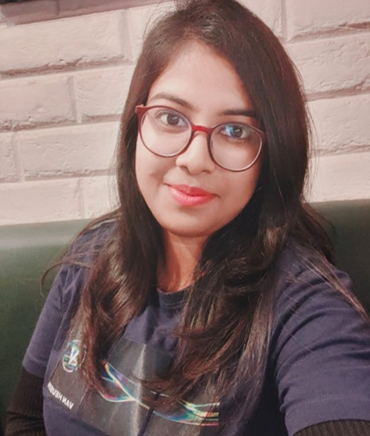
Shreemoyee Palmal is a Young Research Scholar from Kolkata, India. She had worked under the supervision of Dr Arup Kumar Pattanayak at Nil Ratan Sircar Medical College, Kolkata, India, who has 16 years of experience as an eminent Researcher in the field of Molecular Biology. She is involved in several collaborative initiatives. Her research was focused on immunological aspects and host-pathogen interaction, toxicological studies in parasitic research as well as molecular detection of potential biomarkers in dengue infection and prophylactics.
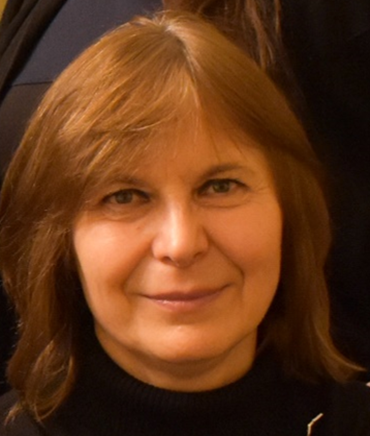
Rui Xu is a Professor at the School of Materials Science and Engineering, University of Science and Technology Beijing (USTB). She received her Bachelor's and Master's degrees in Materials Science and Engineering from Tsinghua University in 2007 and 2009, respectively, and earned her Ph.D. in Materials Science from the University of Rochester, USA, in 2014.
Following her doctoral studies, Professor Xu conducted research at the Argonne National Laboratory's Chemical and Engineering Division as a postdoctoral researcher and assistant materials scientist. She later worked as an R&D chemist at PPG Industries' Monroeville R&D Center. Since joining USTB in August 2020, her research has focused on secondary batteries, including novel metal-sulfur batteries, metal-carbon dioxide batteries, and high-energy lithium-ion batteries. Her work emphasizes understanding the impact of electrode material structural design on ion transport properties and interface stability.
Professor Xu's research findings have been published in prominent journals such as Nature Energy, Nature Communications, and Advanced Energy Materials. She also holds several core domestic and international patents in the field.
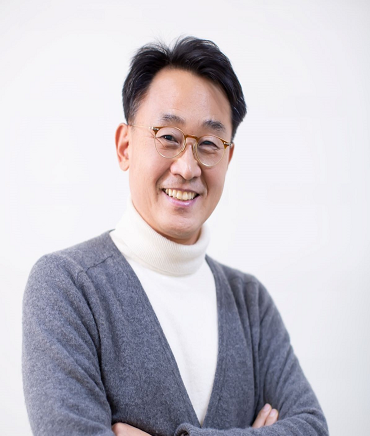
Caixia Qi, is the Director / Professor of chemistry at Shandong Applied Research Centre of Gold Nanotechnology (Au-SDARC), School of Chemistry and Chemical Engineering, Yantai University, China, and engaged in the research of gold catalysis for 25 years. Current research of the group involves design, synthesis of nanogold catalysts for liquid phase oxidation of alcohols and aldehydes to carboxylic acids, hydrogenation of ethyne, catalytic cracking of paraffin and nanosynthesis and testing of materials–containing gold for practical applications.
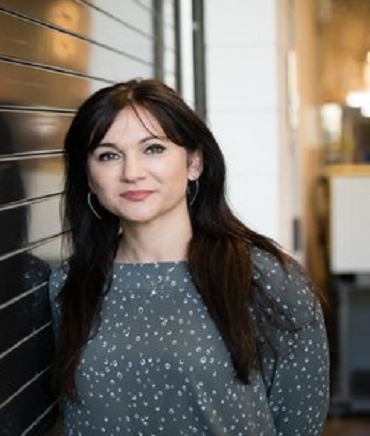
Dr. Simona Onori is an Assistant Professor in Energy Science and Engineering at Stanford University where she also holds a courtesy appointment in Electrical Engineering. Upon joining the Stanford faculty, she funded and currently directs the Stanford Energy Control lab where she leads a team of graduate/undergraduate students, postdocs and international visiting scholars conducting research on the experimental characterization, modeling, control and optimization of energy storage and conversation systems for sustainable transportation and power grid applications. She is an SAE Fellow (2022), and the recipient of the 2020 U.S. DoE Clean Energy Education & Empowerment (C3E) Award, Category Research, the 2019 Board of Trustees Award for Excellence, Clemson University, the 2018 Global Innovation Contest Award by LG Chem, the 2018 SAE Ralph R. Teetor Educational Award and the 2017 NSF CAREER award. She is Editor in Chief of the SAE International Journal of Electrified Vehicles, a distinguished lecturer for the IEEE Vehicular Technology Society (2020-2022) and an IEEE Senior Member (2015).
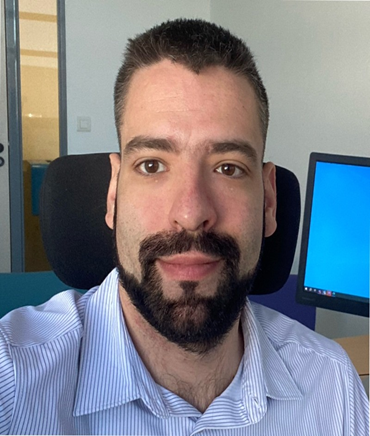
Marko Jovanovic, PharmD and Ph.D. in analytical chemistry is the analytical coordinator within the CMC project team in Sanofi R&D, Montpellier, France. He has 5 years of experience in the domain of analytical chemistry in the academy. He has 15 publications in journals with impact factors and 8 poster presentations at international scientific conferences. He has 7 years of experience in the domain of applied analytical chemistry in the pharmaceutical industry. He has been working so far on multiple medicine candidates in the late phases of the clinical research where he occupied the roles of laboratory manager, analytical project leader, and analytical coordinator.
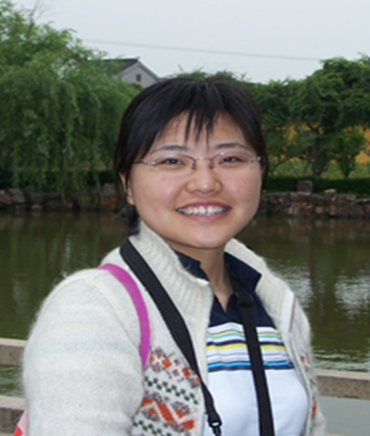
Xiangya Xu is a Founder and Director of Hydroformylation of Olefins Laboratory, Division of Catalytic Science, SINOPEC (Beijing) Research Institute of Chemical Industry Co., Ltd. Research interests are on constructing new hydroformylation catalysts including organometallic and heterogeneous catalysts. Another part is using Metal-organic framework materials as catalysts.

Luca Persichetti earned a Ph.D. in Physics from the University of Rome “Tor Vergata” in 2012. From 2013 to 2016, he was a Marie-Curie COFUND postdoctoral fellow at ETH Zurich and continued there as a Research Assistant until 2018. He then served as an Assistant Professor at Roma Tre University (2018–2022) and has been a Tenure Assistant Professor at the University of Rome “Tor Vergata” from 2018 to 2022 and now he is an Associate Professor. His research activity focuses on surface chemistry, employing microscopy and spectroscopy techniques such as scanning probe microscopies and X-ray absorption and photoelectron spectroscopies.
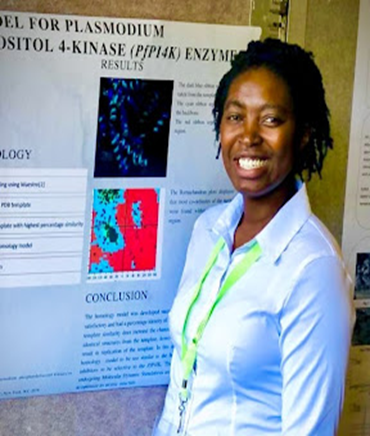
Krzysztof Rajczykowski is a director of the Centre of Environmental Protection in Łukasiewicz Research Network - Institute of Non-Ferrous Metals. His research group has broad experience in different aspects of environmental engineering, related mostly to desulfurization techniques, water and wastewater treatment, heavy metals adsorption, ion exchange processes and extraction. In his current work, he is focusing on the novel methods of lithium extraction from brines and wastewaters, mostly by using highly selective sorbents and resins based on previously selected crown ethers.

Dr. Xuesen Dong is a Professor in the Department of Urologic Sciences at the University of British Columbia (UBC) and a senior scientist at the Vancouver Prostate Centre. He received his medical training in China and obtained his PhD from the University of Toronto. Dr. Dong's research focuses on understanding the molecular mechanisms by which prostate tumors develop therapy resistance, with a particular emphasis on RNA-binding proteins that promote treatment-resistant disease progression. His laboratory employs computer-aided drug design to develop new anti-cancer drugs and utilizes RNA sequencing technology to explore cell-free circular RNA as diagnostic markers.

Prof. Luigi Paduano is a Full Professor at the University of Naples Federico II and Head of the Department of Chemical Sciences. His research focuses on physical chemistry, colloidal systems, and nanostructured materials. He has held positions at Texas Christian University, Rutherford Appleton Laboratory, and Lawrence Livermore National Laboratory. With over 210 publications, three patents, and nearly 7500 citations (h-index 40), his work is widely recognized. He has led major research projects and served on editorial boards and scientific committees. He has also delivered 50+ talks at international conferences and supervises Ph.D. students.

Dr Arup Kumar Pattanayak is a Researcher from Kolkata, India. He is a Molecular Biologist in the department of Microbiology at Nil Ratan Sircar Medical College, Kolkata. He has 16 years’ experience as an eminent Researcher in the field of Molecular genetics, epidemiological studies, and cancer biology. He is engaged in different ongoing collaborative projects. His research is focused on preventative strategies and molecular identification of putative biomarkers of dengue infection.

Hakan Goker is a Professor in the Department of Pharmaceutical Chemistry at Ankara University. His areas of research interest are focused on the design and synthesis of some new antimicrobial and anticancer drug candidate agents against bacteria, fungi, parasites, and cancer cells. He is also interested in advanced NMR techniques for structural elucidation. He has published over eighty articles in well-known medicinal and NMR journals and presented a number of papers in international conferences, and also served as a reviewer for many top-ranked international journals and research proposals. He received the Novartis Prize for Medicinal Chemistry twice and the Most Cited Paper Award.

Prof. Dr. Özlem Temiz Arpacı received her license degree from Ankara University Faculty of Pharmacy (Turkey) in 1989, my master‘s degree in 1991, and her Ph.D. degree in 1998. I currently continue to work as a Professor at Ankara University, Faculty of Pharmacy, Turkey. I focused my studies on the design, synthesis, and pharmacological activities such as antimicrobial, anticancer, and anti-Alzheimer's of various heterocyclic compounds, especially the benzoxazole and its bioisostere rings. I have published over seventy articles in well-known medicinal chemistry journals and presented a number of papers in international conferences.

Millicent (Millie) Firestone is currently the Senior Science Advisor to the Deputy Laboratory Director for Science & Technology in the Office of the Director at Argonne National Laboratory in Lemont, IL. In this role, she provides strategic counsel and support to Argonne’s executive leadership on lab-wide programs and operations. Prior to this position, she served as the Deputy Associate Laboratory Director for Physical Sciences and Engineering at Argonne, where she strategically coordinated science, engineering, and technical programs within the directorate. Her leadership included directing initiatives in emerging fields such as AI-guided high-throughput experimentation (autonomous discovery) and radioisotope discovery. She led strategic roadmapping efforts and oversaw the construction, testing, and validation of an innovative self-driving laboratory designed to accelerate molecule and materials discovery. Before joining Argonne, Millie was a program manager at Lawrence Berkeley National Laboratory in Berkeley, CA, and a staff scientist at Los Alamos National Laboratory in Los Alamos, NM. She earned her Ph.D. in Chemistry from Northwestern University in Evanston, IL, and completed her postdoctoral training at the University of Illinois at Urbana-Champaign.

Efracio Mamani Flores is a professor and research scientist in the Department of Physics at the National University Jorge Basadre Grohmann (UNJBG) in Tacna, Peru. He holds a Ph.D. in Physics and has extensive experience in computational materials science. His research focuses on the theoretical investigation of structural and electronic properties of materials using density functional theory (DFT), with particular emphasis on surfaces and interfaces. His work is oriented toward applications in energy conversion and environmental remediation, involving materials such as metal oxides and photovoltaics.

César Ayerdis Ruiz has recently obtained his Master´s degree with honors in Chemistry from the University of Costa Rica. His research focuses on the synthesis of macromolecules for their application in dye-sensitized solar cells. Since 2022, he has been working in the synthesis, molecular design, and photovoltaic study of new bile acid-derived compounds that can work as efficient coadsorbants, redox shuttles, and photosensitizers in DSSC. Currently, he is working on the synthesis of new heteroleptic polypyridinic ruthenium dyes and studying the photovoltaic performance of fluorenone derivatives. His research is being carried out in the supramolecular chemistry laboratory of the Chemistry Department of the University of Costa Rica and the Center of Electrochemistry and Chemical Energy (CELEQ).

Roland Assaraf has been a Research Officer at the French National Research since October 2000. He works in the methodology team for quantum chemistry in the theoretical chemistry lab (UMR 7616) at Sorbonne Université Paris. From a physical background, his main specialty is the development of stochastic methods, especially Quantum Monte Carlo methods for electronic structure calculations.

Dr. Yang is an associate professor at Hubei University of Technology and a senior researcher at the Centre for Advanced Innovation Technologies, VSB - Technical University of Ostrava. His research focuses on basic research of high-performance and high-value utilization technology of solid waste, as well as the design and preparation of low-carbon and functional cement-based composites. He was named among Stanford University's World's Top 2% Scientists. He has published 113 papers in international journals like Cement and Concrete Research, Chemical Engineering Journal, and Cement and Concrete Composites.

Adina Boldeiu received the Ph.D. in Chemistry in 2012 from the University of Bucharest, Bucharest, Romania. Now, she works as a scientific researcher at the National Institute for R&D in Microtechnologies – IMT Bucharest, being focused on: (i) metallic nanoparticles synthesis with controllable size and shapes; (ii) assembling of functional nanomaterials for sensing applications (i.e., plasmonic platform for nanoplastics detection), and polymers-metallic nanoparticles-based nanocomposites for methanol electrocatalysis in proton exchange membrane fuel cells. So far, more than 80 ISI articles have been published in famous international journals, and 450 Sum of Times Cited without self-citations.

Lorenzo Gontrani is an associate professor of Inorganic Chemistry at the University of Rome Tor Vergata. He has a solid background in the computational description of complex chemical systems (ab initio, classical molecular dynamics), fully integrated with experimental techniques, like spectroscopic and diffractometric analyses. In particular, his current research interests are mainly focused on: Synthesis of metal oxide nanoparticles with traditional and innovative media, like Deep Eutectic Solvents and ionic liquids; Powder XRD analysis (Rietveld method), SEM microscopy and DRS measurements of nanoparticles and pigments; Calculation of electronic properties (bandgap and UV-Vis spectra) of dyes for DSSC, in various environments. He co-authored 115 peer-reviewed papers with an H-index of 33, 2 book chapters, has edited one monograph dedicated to the structural aspects of ionic liquids and serves as a reviewer of several journals in the field of computational chemistry, ionic liquids/DES, and materials science. He is a member of the Italian Chemical Society, of some editorial committees, and a referee for the Italian Research Evaluation Program (VQR-ANVUR). He reported the results of his research in several national and international congresses, also as an invited speaker.

Chiara Colletto received her PhD in Organic Chemistry in 2018 from the University of Manchester (UK), where she specialised in catalyst design and mechanistic investigations. She then joined a UK-based biotech company as a medicinal chemist, contributing to the discovery of small-molecule therapeutics with anticancer activity. For the past two years, Chiara has been part of Chematek. She initially worked as a process chemist, developing synthetic routes for commercial-scale products. She now serves as Business and Technical Development Manager, where she combines scientific expertise with strategic insight. In this role, she supports clients by addressing technical challenges and driving project development, with a particular focus on Chematek’s technology and know-how in organometallic reducing agents.

Malek Nechab is an associate professor in organic chemistry at Aix-Marseille University with 20 years of experience. The Current research of the group is directed toward the stabilization of radicals and application in asymmetric synthesis, cascade reactions, sustainable radical synthesis and polymerization. He is also involved in the design, synthesis and SAR studies of dienes with a wide range of biological properties, especially antiviral, anticancer, and antibacterial.

Bing Yan is a Fellow of the Royal Society of Chemistry and a Cheung Kong Scholar Professor at Guangzhou University, focusing his research on nanotoxicology and environmental health. He earned his Ph.D. in Chemistry from Columbia University in 1990, followed by postdoctoral research at the Department of Physiology at the University of Cambridge, U.K., and the Department of Microbiology and Molecular Genetics at the University of Texas Medical School in Houston from 1990 to 1993. From 1993 to 2006, he worked in drug discovery at the Novartis Biomedical Research Institute and Bristol-Myers Squibb, and from 2007 to 2012, he served as a Professor of Pharmaceutics and Director of the High-Throughput Analytical Center at St. Jude Children’s Research Hospital in Memphis. Since 2005, he has been a Cheung Kong Scholar Professor, first at Shandong University and later at Guangzhou University, China. Dr. Yan has authored or edited 11 books and published over 380 peer-reviewed papers. He serves as Editor-in-Chief of Ecotoxicology and Environmental Safety and as an Associate Editor for NanoImpact.
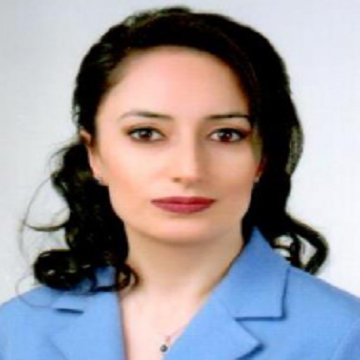
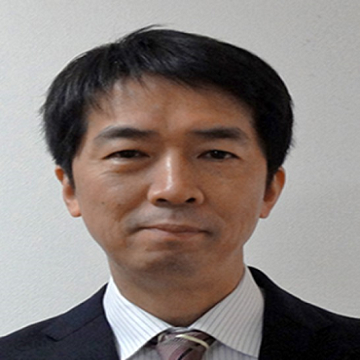
Shin Aoki received Ph.D. from the University of Tokyo in 1992 under the supervision of Prof. Kenji Koga. He became an assistant professor at the University of Tokyo in 1990 and a postdoctoral fellow at the Scripps Research Institute, USA, to work with Prof. Chi-Huey Wong from 1992-1994. After he came back to Univ. Tokyo, he joined Prof. Eiichi Kimura’s group in 1995 at Hiroshima University. In 2003, he was promoted to a professor at the Faculty of Pharmaceutical Sciences, Tokyo University of Science and became a vice director of the Research Institute for Science and Technology of Tokyo Uni. Sci.

Thorsten Wack graduated in theoretical physics at the Technical University of Dortmund in 1995 and received his doctorate at the Ruhr University Bochum in the Faculty of Mechanical Engineering. He has been at Fraunhofer UMSICHT since 1995, where he is now head of the business unit "process digitalization".
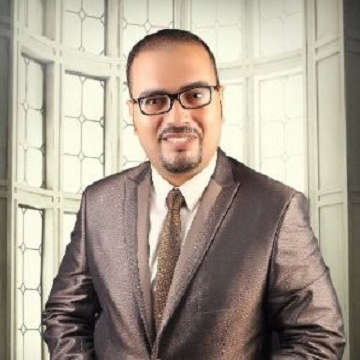
Dr. Amgad M. Rabie, Professor & Researcher of Pharmaceutical Organic (Medicinal) Chemistry & Drug Design/Discovery, Department of Pharmaceutical Organic Chemistry, Faculty of Pharmacy, Mansoura University, Mansoura, Egypt. He is the editor-in-chief & the chairman of the peer-reviewing committee of the famous journal in biotechnology and bioengineering worldwide, the International Journal of Biotechnology and Bioengineering (IJBB), USA & Europe. His major role is to help the American Chemical Society (ACS)to improve people’s lives through the transforming power of chemistry. He is the editorial board director & chairman of the multidisciplinary and internationally famous & comprehensive journal in all pharmaceutical & medicinal sciences worldwide, the Journal of Pharmaceutical and Medicinal Research (JPMR).

Dr. Turick has over 40 years of research experience in academia, industry and federal laboratories. Part of his background includes microbial ecology, physiology, and biophysics involving extracellular microbial electron transfer. The current focus is on defining bacteria as electrochemical entities by combining electrochemical and microbiological techniques in order to monitor microbial activity in-situ and in real-time. The specific technical focus is on remote microbial sensors directed to technologies for a sustainable environment. Part of his current activities at ElectroBioDyne, LLC is directed at linking microbiology, physiology and electrochemistry for sensor design.

Aleksandra Wesełucha-Birczyńska leads the Vibrational Spectroscopy Group at Faculty of Chemistry. The main directions of research include studies of materials of biological origin (blood cells, central nervous system tissues in an animal model, Cinchona alkaloids, plant materials including cellulose) and minerals (carbon nanoparticles, archaeological artifacts) in the context of their structure and function using Raman spectroscopy and two-dimensional correlation spectroscopy 2D-COS. Analysis of the molecular structure of biomaterials for regenerative medicine and molecular interactions at the phase boundary observed in a new generation hybrid layers for medical applications and finally, the study of water structure in hydrophobic drug formulations.

Jianhui Liu received a Bachelor of Engineering (B.Eng.) degree in Chemical Engineering and Technology from Xi'an Jiaotong University (XJTU) in China. He then did a Ph.D. study at the Department of Chemical and Biological Engineering of Hong Kong University of Science and Technology (HKUST) under the Hong Kong PhD Fellowship Scheme (HKPFS), followed by a short Post-doctoral Fellow appointment. He is now a Post-doctoral Fellow at Harvard School of Dental Medicine (HSDM) and Forsyth Institute in the USA. His research interests lie in materials chemistry, nanotechnology, self-assembly, bio-inspired materials, and polymer science.

Rui Xu is a Professor at the School of Materials Science and Engineering, University of Science and Technology Beijing (USTB). She received her Bachelor's and Master's degrees in Materials Science and Engineering from Tsinghua University in 2007 and 2009, respectively, and earned her Ph.D. in Materials Science from the University of Rochester, USA, in 2014.
Following her doctoral studies, Professor Xu conducted research at the Argonne National Laboratory's Chemical and Engineering Division as a postdoctoral researcher and assistant materials scientist. She later worked as an R&D chemist at PPG Industries' Monroeville R&D Center. Since joining USTB in August 2020, her research has focused on secondary batteries, including novel metal-sulfur batteries, metal-carbon dioxide batteries, and high-energy lithium-ion batteries. Her work emphasizes understanding the impact of electrode material structural design on ion transport properties and interface stability.
Professor Xu's research findings have been published in prominent journals such as Nature Energy, Nature Communications, and Advanced Energy Materials. She also holds several core domestic and international patents in the field.

Luca Persichetti earned a Ph.D. in Physics from the University of Rome “Tor Vergata” in 2012. From 2013 to 2016, he was a Marie-Curie COFUND postdoctoral fellow at ETH Zurich and continued there as a Research Assistant until 2018. He then served as an Assistant Professor at Roma Tre University (2018–2022) and has been a Tenure Assistant Professor at the University of Rome “Tor Vergata” from 2018 to 2022 and now he is an Associate Professor. His research activity focuses on surface chemistry, employing microscopy and spectroscopy techniques such as scanning probe microscopies and X-ray absorption and photoelectron spectroscopies.

Pierre-Yves Renard has been a full professor of organic chemistry at the Université Rouen-Normandie since 2003. He has at the head of the bioorganic chemistry group since 2006. In 2007, Pierre-Yves Renard was awarded a 5-year tenure position as a Junior member of “Institut Universitaire de France”. Current research of the group involves bioconjugate chemistry, photocross-linkers, profluorescent and chemiluminescent probes, and medical countermeasures against organophosphorus nerve agents. Pr. Renard co-authored 180 publications and 15 patents.

Caixia Qi, is the Director / Professor of chemistry at Shandong Applied Research Centre of Gold Nanotechnology (Au-SDARC), School of Chemistry and Chemical Engineering, Yantai University, China, and engaged in the research of gold catalysis for 25 years. Current research of the group involves design, synthesis of nanogold catalysts for liquid phase oxidation of alcohols and aldehydes to carboxylic acids, hydrogenation of ethyne, catalytic cracking of paraffin and nanosynthesis and testing of materials–containing gold for practical applications.

Bing Yan is a Fellow of the Royal Society of Chemistry and a Cheung Kong Scholar Professor at Guangzhou University, focusing his research on nanotoxicology and environmental health. He earned his Ph.D. in Chemistry from Columbia University in 1990, followed by postdoctoral research at the Department of Physiology at the University of Cambridge, U.K., and the Department of Microbiology and Molecular Genetics at the University of Texas Medical School in Houston from 1990 to 1993. From 1993 to 2006, he worked in drug discovery at the Novartis Biomedical Research Institute and Bristol-Myers Squibb, and from 2007 to 2012, he served as a Professor of Pharmaceutics and Director of the High-Throughput Analytical Center at St. Jude Children’s Research Hospital in Memphis. Since 2005, he has been a Cheung Kong Scholar Professor, first at Shandong University and later at Guangzhou University, China. Dr. Yan has authored or edited 11 books and published over 380 peer-reviewed papers. He serves as Editor-in-Chief of Ecotoxicology and Environmental Safety and as an Associate Editor for NanoImpact.
1968 S. Coast Hwy #3568
Laguna Beach, CA 92651
United States
+1-949-204-0749
